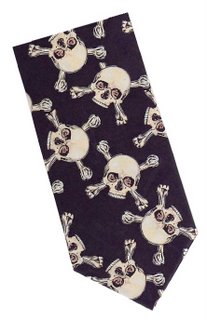
- "Every artist is a cannibal, every poet is a thief."
- U2, The Fly
Steal. Yes, I am advocating it. Steal with fervor.
When you hear an artist say, "It was inspired by..." what he really means is, "I tried to emulate the techniques, format, or functionality of...." Of course, in creative circles, people have come to uncomfortably accept such practices as compliments.
It can be interpreted the same way in the rest of the world, too. Use the best practices of others. Allow them to sharply hone and refine their systems and ideas, then guiltlessly seize them and make them your own. Assuming nothing proprietary (and thus illegal) is being displaced, most of these best practices are leadership skills - ways to teach success.
Find successes and leaders you admire, learn their stories and their ways, and then use them. Adaptation will follow, and before you know it, someone will be stealing your best practices.